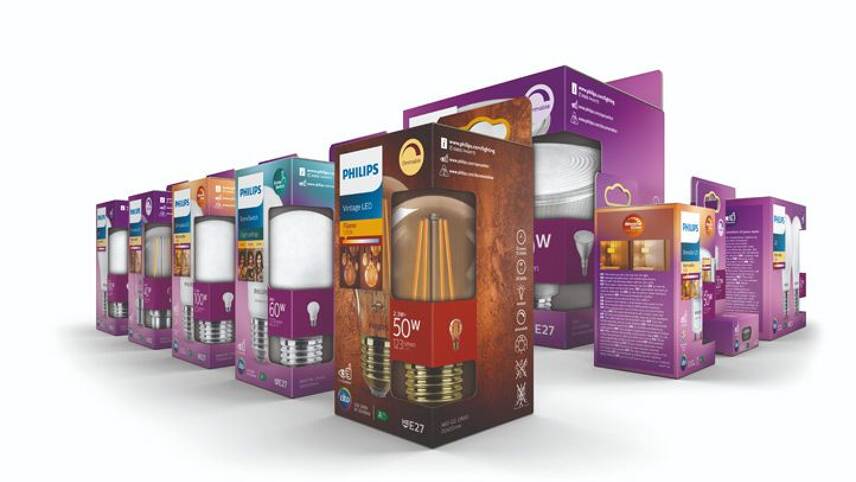Register for free and continue reading
Join our growing army of changemakers and get unlimited access to our premium content

When savings from transport and material type are accounted for
Signify has become the latest corporate to commit to reducing problematic plastics from its packaging. The company currently uses 80% recycled paper for its packaging but has this week committed to phasing-out all types of plastic from its consumer-related product packaging.
The company is aiming to deliver plastic-free packaging by 2021, in a move that will avoid the use of more than 2,500 tonnes of plastic each year – equivalent to around 125 million plastic bottles.
“Plastic waste has a very negative impact on our planet and its biodiversity and we decided that we must take a leading role and start using plastic-free alternatives. It is the right thing to do and meets the increasing expectations of our customers,” Signify’s chief executive Eric Rondolat said.
“I look forward to the moment that we can announce that we no longer use plastics in our packaging.”
New paper-based box packaging will be prioritised across Signify’s range of energy-saving LED bulbs, starting in Europe late on in the year. A global rollout will commence next year.
On the LED front, research from Signify – formerly Philips Lighting – suggests that a global switch to LEDs could avoid more than 400 million tonnes of CO2 emissions while generating more than £70bn in cost savings.
In addition to removing plastics from packaging, the commitment will help lower carbon emissions. The new packaging will be smaller and therefore reduce transport-related emissions. When savings from transport and material type are accounted for, Signify estimates that around 6,000 tonnes of carbon emissions will be avoided annually.
However, a switch to paper doesn’t necessarily equate to reduced emissions. In 2018, paper and card were accountable for more emissions in the UK than any other material. While this is attributable to the material’s market share, measures from businesses must ensure that paper is sourced sustainably and using low-carbon methods.
The packaging commitment builds into Signify’s Brighter Lives, Better World sustainability programme. Through the programme, Signify is on course to reach a headline of ambition of achieving carbon neutrality globally.
Signify has confirmed that it is on track to reach carbon neutrality by the end of the year, and is currently operating as a carbon-neutral business in 15 of its 19 markets.
Matt Mace


Please login or Register to leave a comment.